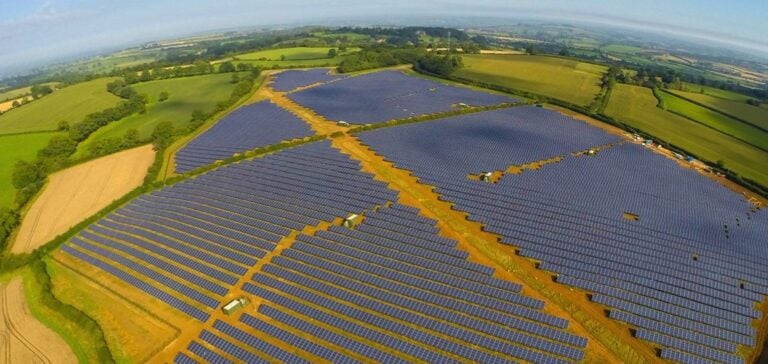British Solar Renewables (BSR) has recently received approval from East Suffolk Council for the construction of two solar parks: Town Farm Solar Park and Park Farm Solar Park. Together, these projects will provide enough renewable energy to meet the annual electricity needs of over 10,000 homes, contributing to the climate emergency declared by the council.
Energy and ecological impact
The two solar farms will have a combined production capacity of over 40MWp, reducing CO2 emissions by almost 10,000 tonnes a year. Park Farm Solar Park, with a capacity of 21MWp, will power around 5,250 homes and reduce CO2 emissions by 4,650 tonnes per year. Town Farm Solar Park, which received approval in January 2024, will have a similar capacity and will make an equivalent contribution to emissions reduction, comparable to Whinfield Solar Farm.
In addition to their energy contribution, these projects will incorporate significant ecological improvement measures. Town Farm Solar Park forecasts a net increase of 178% in habitat units and 52% in hedgerow units. Park Farm Solar Park, meanwhile, shows a net increase of 106% in habitat units and 116% in hedgerow units, promoting local biodiversity.
Local initiatives and environmental objectives
East Suffolk Council, in declaring a climate emergency, has emphasized the need for urgent action to tackle climate change. The Town Farm and Park Farm solar farms will play a key role in supporting this climate action framework, in line with the ambitious targets recently reiterated by the UK government.
BSR has also established partnerships with local parish councils to ensure that communities benefit directly from the projects. Kelsale-Cum-Carlton Parish Council and Pettistree Parish Council will participate in the administration of community funds aimed at improving local impact.
These developments show how solar projects can integrate environmental objectives while providing clean, renewable energy. They represent an important step in the local and national energy transition, while helping to protect biodiversity and reduce CO2 emissions.






















